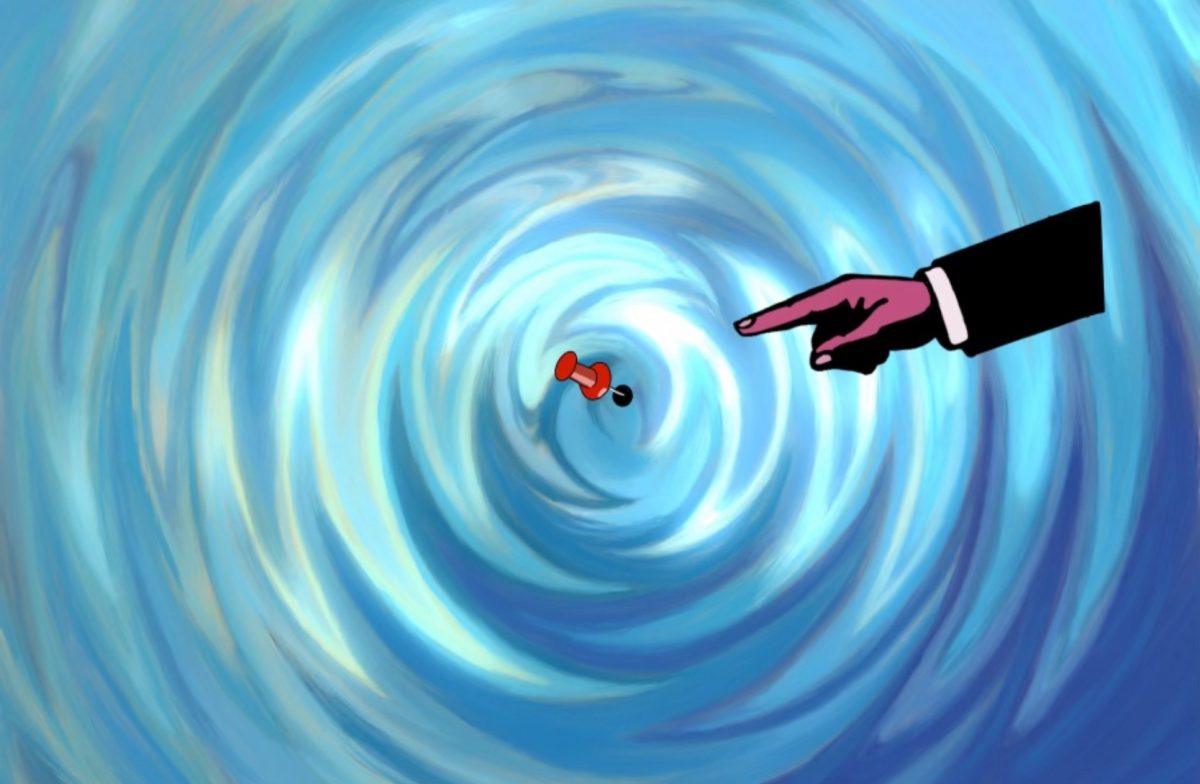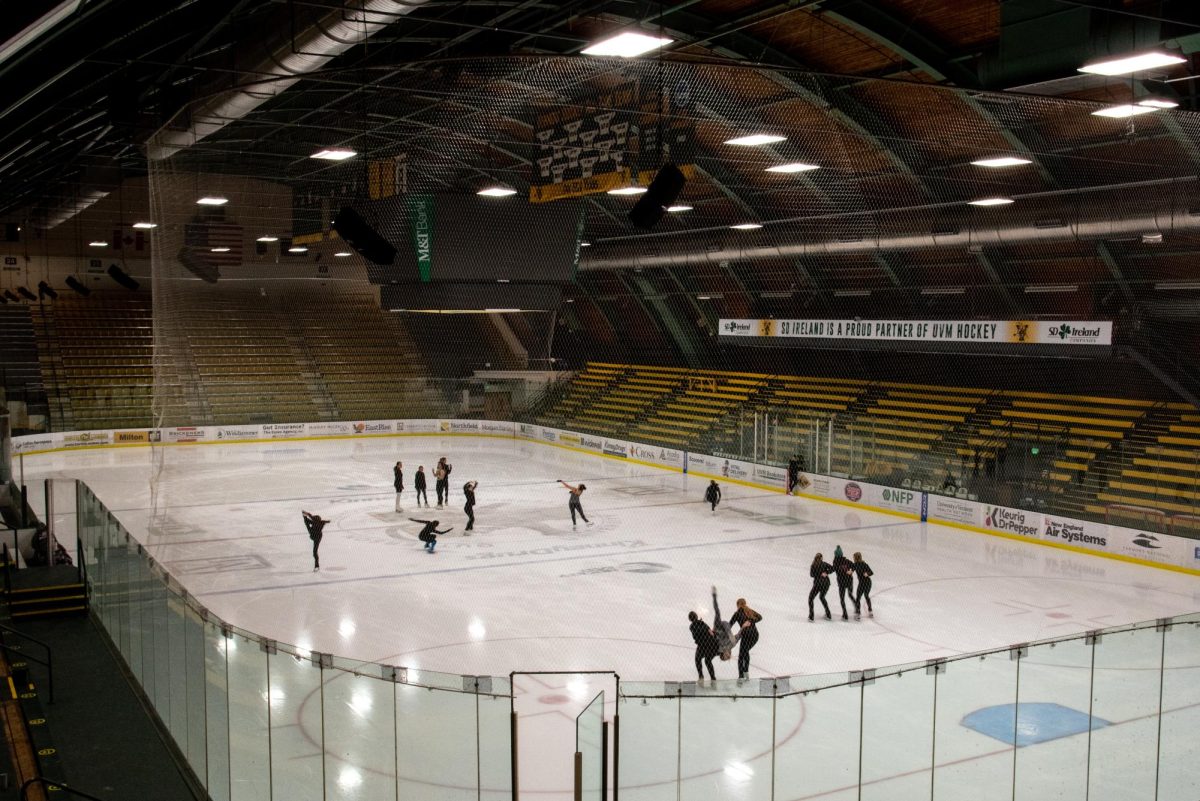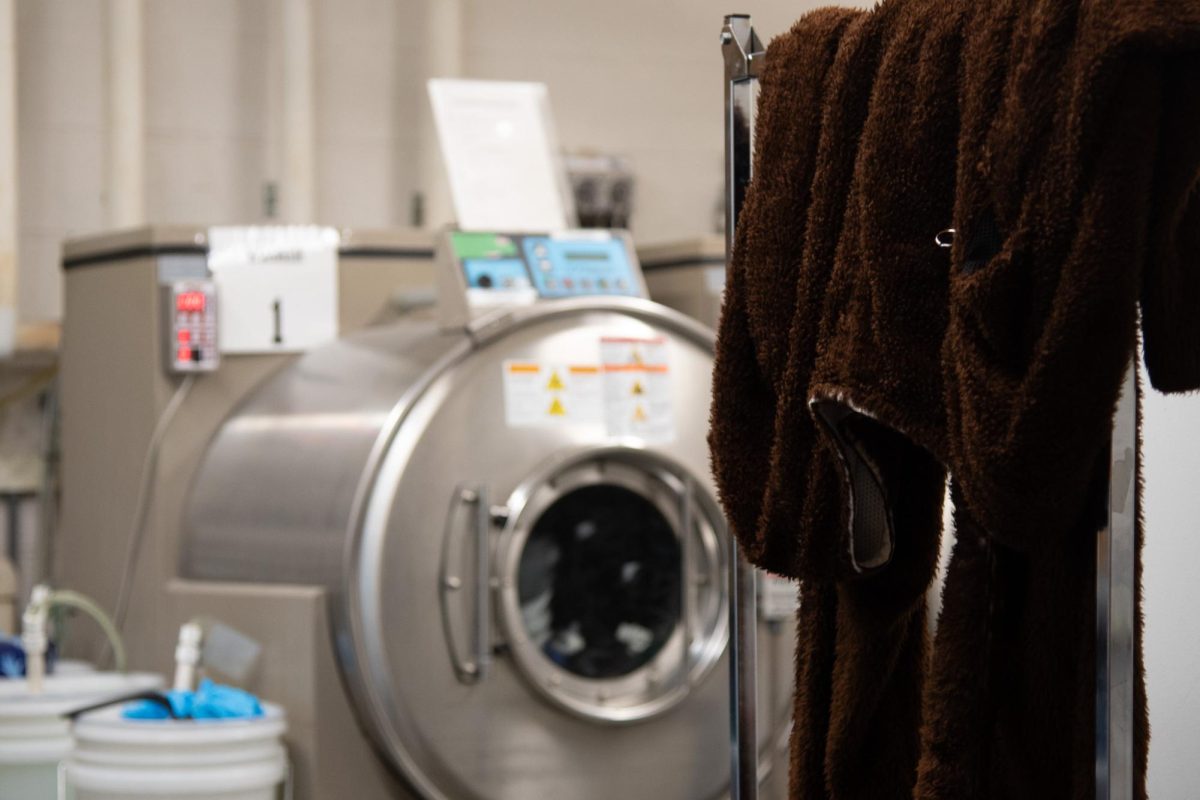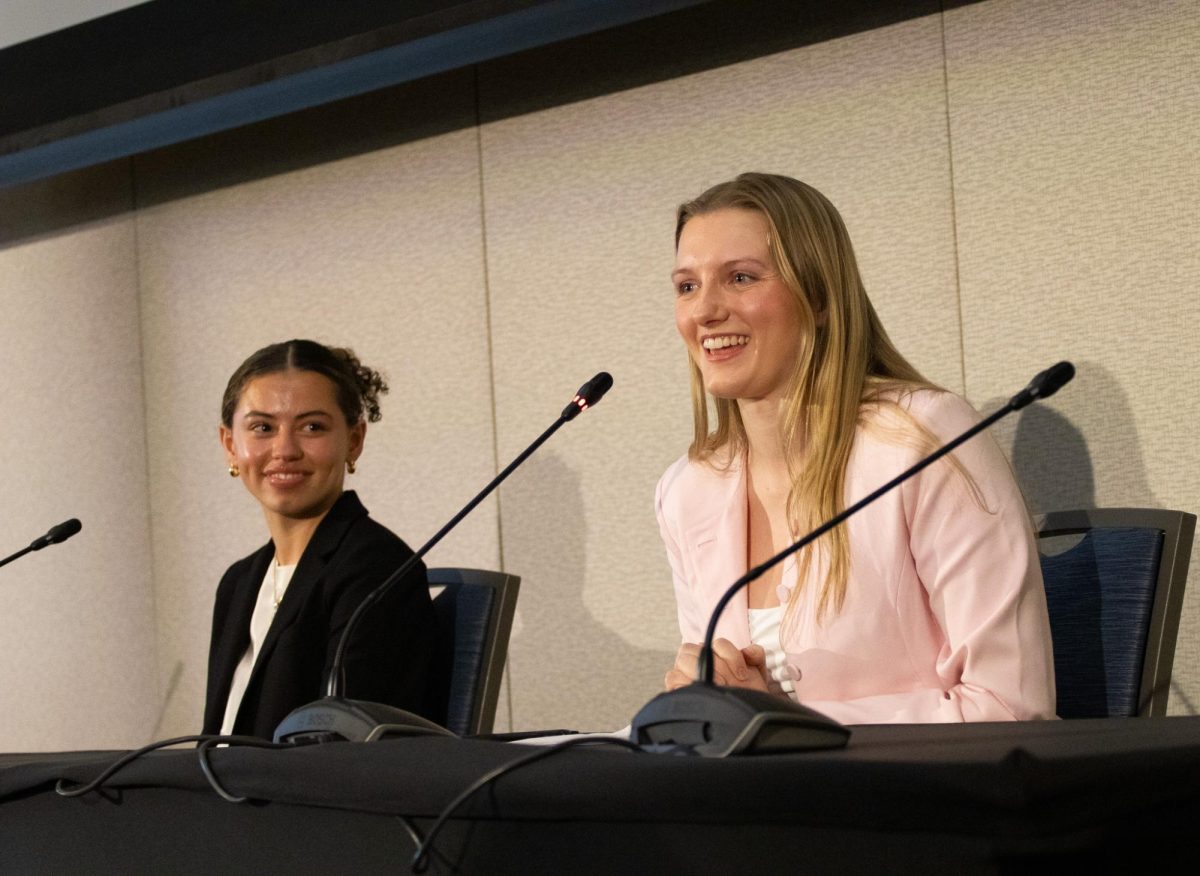Recently, I found myself in office hours, venting to my professor about my anxiety over the occupation of Palestine.
After all my word-vomit—while typing out another email—she smiled, and responded: “Abby, this is why voting is so important.”
Respectfully, what the fuck. Our representatives are hardly advocating for a ceasefire resolution—let alone more meaningful actions, such as withdrawing financial support for Israel.
When I told my friend about the experience, she suggested we go to a ceasefire rally.
Suddenly, I felt like a weight had been lifted because now I felt like I could do something about it.
Since Oct. 7, my understanding of activism and my strength as one person has changed. I recognize now the power we have as individuals to make a difference, even when others disagree.
All my life I have felt discouraged from small individual actions to make the world better and that only massive, costly and intricate efforts can yield meaningful change.
It feels terrible to be constantly told that anything you can do means nothing in the grand scheme of things and believing you are just one young and naive adolescent.
But I have learned a lot in recent months about what one twenty-something can do.
Plestia Alaqad is a 22-year-old journalist from Gaza who has been documenting daily life on Instagram since Israel’s response to the Oct. 7 attacks.
Along with other young journalists risking their lives, Alaqad opened a window for people everywhere to witness the bombing and the internal displacement of millions of Palestinians and the chaos which results from their lack of resources.
Her Instagram posts depict how they have no electricity, little food, water, internet or hope. Everything and everyone is a target, and Alaqad is documenting all of it. As bombs rain from the sky she can only wish for a moment of peace and for the world to listen.
She’s not the only one.
Just as Alaqad and her peers are teaching the world, when I was younger, my Jewish grandparents taught me the stories of my ancestors’ suffering and the power of our community.
But a few weeks ago, my parents warned me that criticizing Israel would get me into “trouble” with my family.
I don’t know what to do if I cannot use my own voice to advocate for a humanitarian crisis without fearing what my family will say, or worse, being ostracized simply because they disagree with my opinion.
Just because I, at the very least, believe Israel’s indiscriminate bombing of civilians is wrong doesn’t mean I am a self-hating Jew, a traitor to my people, and especially not a kapo. I love being Jewish and I always wear my identity proudly.
Unfortunately, it seems nowadays that the first reaction to criticism of Israel or Zionism is claims of antisemitism.
I fear the larger implications of weaponizing my ancestors’ trauma. If we can justify bombing innocent civilians, where does it end? Where do we draw the line?
I feel not only helpless as an individual, but also isolated and alone as a Jewish student who stands with Palestine.
Alaqad’s continued reporting as the bombs drop ignites a fire within me and presses me to keep fighting. I will continue to fight for the rights of Palestinians because, as a Jewish person, I know all too well what happens when the world turns a blind eye to suffering.
But not all hope is not lost.
On Nov. 4 in Burlington, thousands marched in a rally calling for a ceasefire alongside tens of thousands across the world.
I wrote a piece with the help of professor Trish O’Kane who hand-delivered the message to VT House Representative Becca Balint—a week later, Balint listened to her constituents and called for a ceasefire.
What started as a simple idea—writing out my thoughts and feelings of helplessness to assist my family in understanding my perspective—quickly evolved into what O’Kane believed could be a tool to bring about real change, in spite of its small origin.
“All mass movements start somewhere, with someone or a small group of someones around a kitchen table,” said O’Kane. “In my book, I use the metaphor of a starling murmuration as inspiration for organizing.”
We will continue boycotting Disney, Starbucks, McDonald’s and any company that supports Israel, as detailed by the BDS Movement’s guide. Boycotts demonstrate how individual action coupled with community organization can make a difference, as those in power only listen to their pockets.
So repost that infographic, volunteer with an organization advocating for Palestine or buy E-sims for the people in Gaza without internet.
One person can make a monumental difference by raising awareness—Plestia Alaqad is proof—and we cannot let discouraging rhetoric and societal norms prevent us from making that difference.
“I love watching starlings because they remind me to start where I am, with the people around me,” O’Kane said. “What can we change together where we live? How can we dance together through the skies, creating beauty as well as social change?”


















